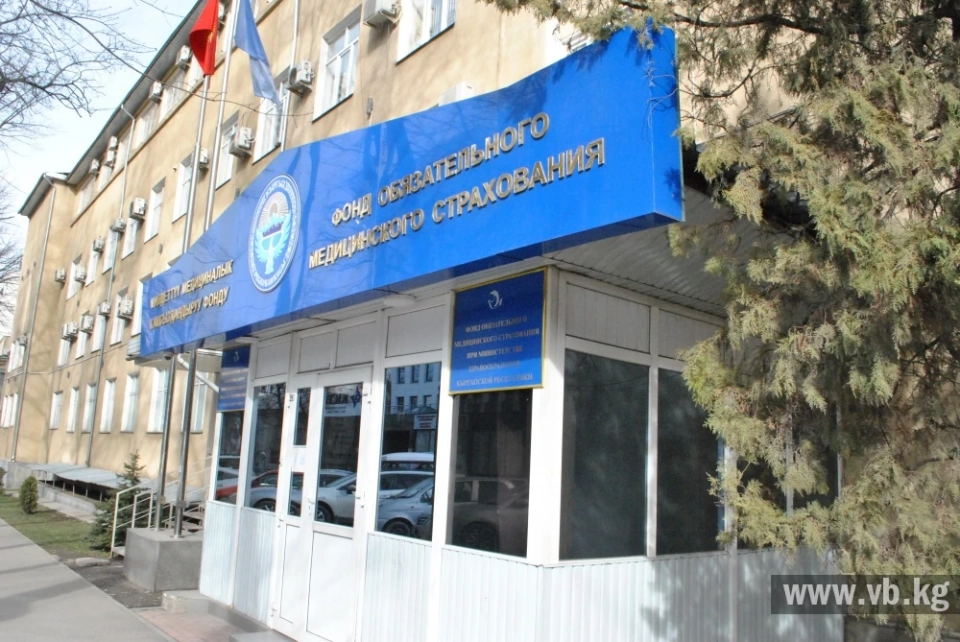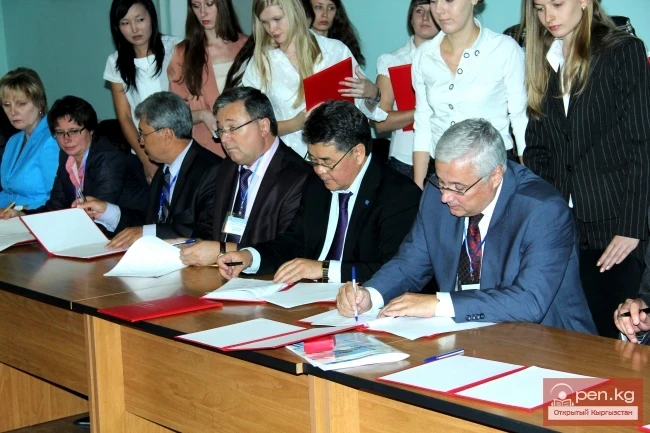However, as it became known from one of the private insurance organizations, foreign students are now required to purchase a compulsory health insurance policy (FOMS) costing about 12,000 soms and to receive medical services exclusively in state institutions under the threat of fines.
The deputy chairman of the Mandatory Health Insurance Fund, Sanjarbek Isaev, explained the reasons for these requirements to the editorial team of Kaktus.media.
Since the beginning of this year, the General Prosecutor's Office has conducted an inspection of the enforcement of health insurance legislation in Kyrgyzstan, including medical universities and faculties. During the inspection, it was found that some educational institutions diligently require foreign students to purchase an annual or semi-annual compulsory health insurance policy, while others showed negligence or did not monitor the presence of insurance. The results of the inspection led to warnings being issued.
There are more than 90 universities in the country where foreigners study in various specialties. The Mandatory Health Insurance Fund has signed agreements with these universities, according to which students are required to have policies and receive medical services in state institutions at their place of study. After the inspection, the situation improved, and currently, more than 90% of foreign students have already purchased medical policies.
- If there are no sanctions, how can you demand compliance with the law?- I will explain. Not all violations should lead to fines, but this does not exempt citizens, including foreigners, from the obligation to follow the law. For example, if a citizen of Kyrgyzstan is unemployed and does not make contributions, he is still required to have insurance. This is a general rule.
The law from 1999 clearly defines the categories of citizens who must have a compulsory insurance policy. This applies to both citizens and those who are unemployed. Citizens with official jobs are already registered as insured. The state makes contributions for children, pensioners, people receiving benefits, military personnel, and the unemployed — they are also in the database. Self-employed individuals must independently purchase insurance.
Therefore, the absence of punishment does not mean the absence of obligations.Based on these norms, the Fund concludes agreements with universities, which stipulate that foreign students must have a compulsory health insurance policy. Educational institutions provide data on the number of students and policies to the territorial offices of the FOMS for monitoring compliance.
In recent years, there has been an increase in demand for policies. People understand that it is better to arrange insurance in advance, as the absence of a policy can lead to significant expenses. For example, in a hospital without insurance, a person pays the maximum co-payment — about 16,000–17,000 soms, while with a policy, it is only about 1,700 soms.
- How is the quality of medical services? Is there monitoring?- Monitoring quality is one of the key tasks of the FOMS; it is carried out not only within the framework of compulsory health insurance. We inspect institutions using evaluation forms of about 100 pages, covering all organizations with which contracts are signed (there are 182). Each institution undergoes inspection twice a year. The form includes a wide range of questions: the availability of necessary premises, equipment, medications, compliance with sanitary standards and clinical protocols, as well as patient surveys regarding satisfaction with services.
The final score is 1,000 points. If an institution receives 200–300 points, this is a signal of serious problems. Fortunately, there are no such cases; mostly, institutions receive more than 600-700 points.
Experts in the territorial offices check medical institutions every six months, compile reports and recommendations. If problems arise, for example, with the provision of medications or compliance with sanitary standards, these materials are reviewed at the Ministry of Health's boards. Measures may be taken or recommendations made to the management of medical institutions.
- The Minister of Health proposed to increase insurance contributions so that the employee pays 2%. What are the benefits of this proposal?
- This initiative was proposed last year and is currently being discussed. At the moment, employees do not make contributions from their own pockets — the employer pays for them. We propose a phased increase in contributions — by 1% per year, so that ultimately it would be 2% from the employee and 2% from the employer. This should increase the FOMS budget and, as we hope, expand the range of services for the insured, for example, to provide annual MRIs covered by compulsory health insurance or some expensive surgeries.
However, this requires coordination with the Ministry of Finance, the Ministry of Economy, the Social Fund, and other structures, followed by a decision from the Cabinet of Ministers, Parliament, and the President's signature. The issue is still under discussion.
There are concerns that in the context of low salaries, citizens may react negatively to an additional 2% expense.



















